Syrian refugee gets top results at Australian school
- Published
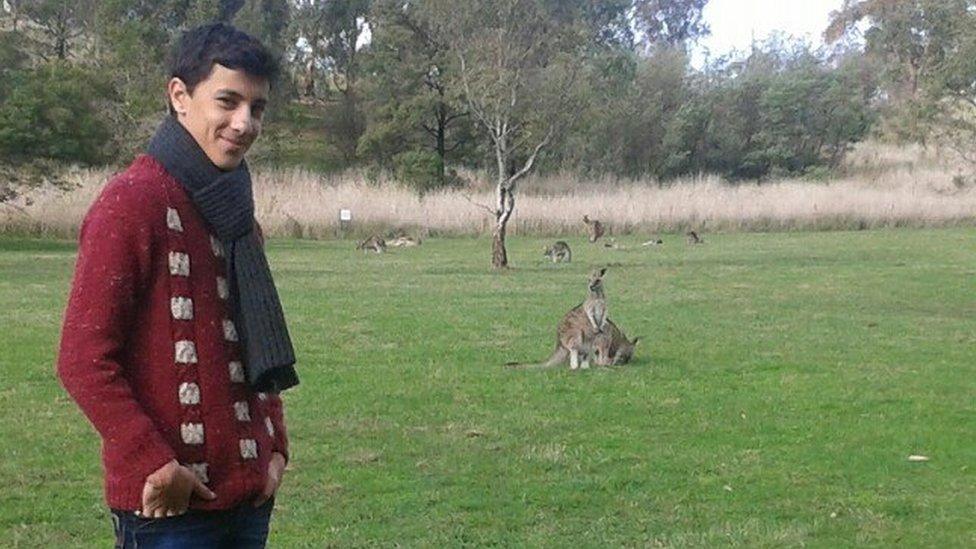
Saad with a kangaroo after arriving in Australia
A Syrian refugee who couldn't speak English two years ago has just passed exams with flying colours in Australia.
But Saad Alkassab wasn't always the best student.
"I was actually, before the war, that boy who would say 'I wish I could never go to school again'," he tells Newsbeat. "My wish came true and it was shocking. I actually felt guilty."
Saad was just 14 years old when the civil war started in his country in 2011.
For two years, he didn't go to school as public buildings were turned into refugee camps or army bases.
The family were forced to move from suburb to suburb, fleeing the bombs.
His older brother's arrest by the regime - for helping co-ordinate food aid and humanitarian efforts as a scout leader - was a "red line" and the family decided they had to flee.
They crossed the border to Lebanon, then flew to Egypt where they stayed for a year, before moving to Melbourne in Australia.
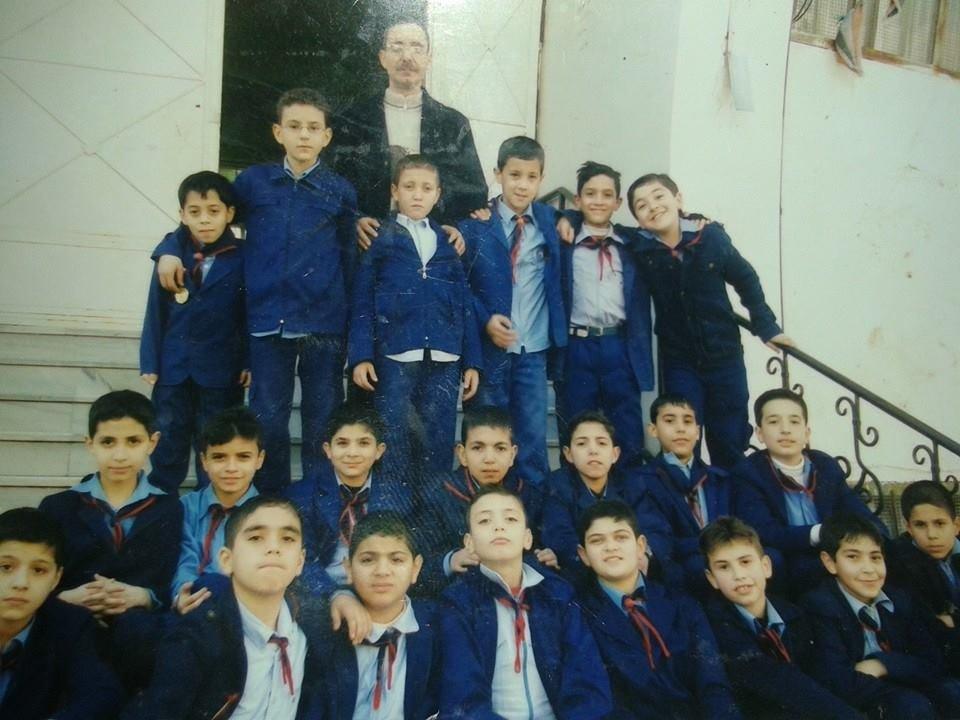
Saad with his Grade 6 teacher and classmates in Homs, Syria, before the war forced schools to close
From zero English to top marks
Now 19, Saad has just graduated with the best marks at one of Australia's biggest Catholic secondary schools, and the top 4% in Melbourne.
He was awarded an Australian Tertiary Admission Rank (ATAR) of 96.65 after studying at Catholic Regional College Sydenham, in north-west Melbourne.
It would be impressive for anyone - let alone a refugee who didn't speak any English when he arrived in the country with his parents, two brothers and one sister, in the middle of 2014.
"Coming to a place where you don't know how to speak, where you don't understand people - it was really hard, that first stage, because it just felt unreal," says Saad now.
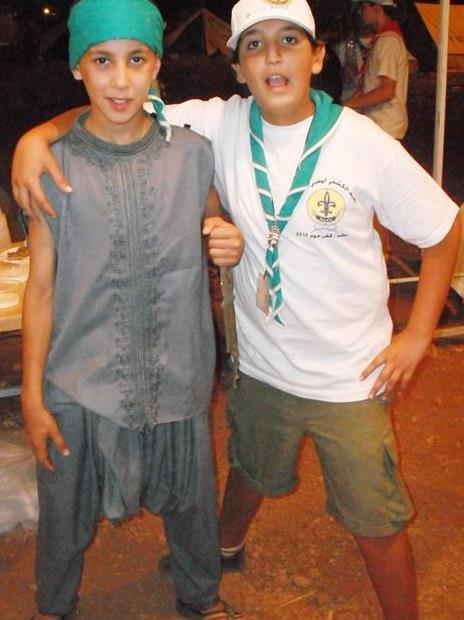
Saad and his friend in the Syrian scouts
The pros of politics
After two months of learning English from his cousins, he applied to schools but was turned down.
Then he started watching Question Time - Australia's version of Prime Minister's Questions in Parliament - and his English began to take off.
"They use the best, persuasive language in parliament," he says. "They speak slowly and you can find the words."
He also enjoyed seeing politics in action - especially when it was so different to Syria.
"I found it fascinating," says Saad. "In Syria, it's a dictator regime, and [in] parliament in Syria, all they do is clap. They will agree to anything because you cannot be against [the government]."
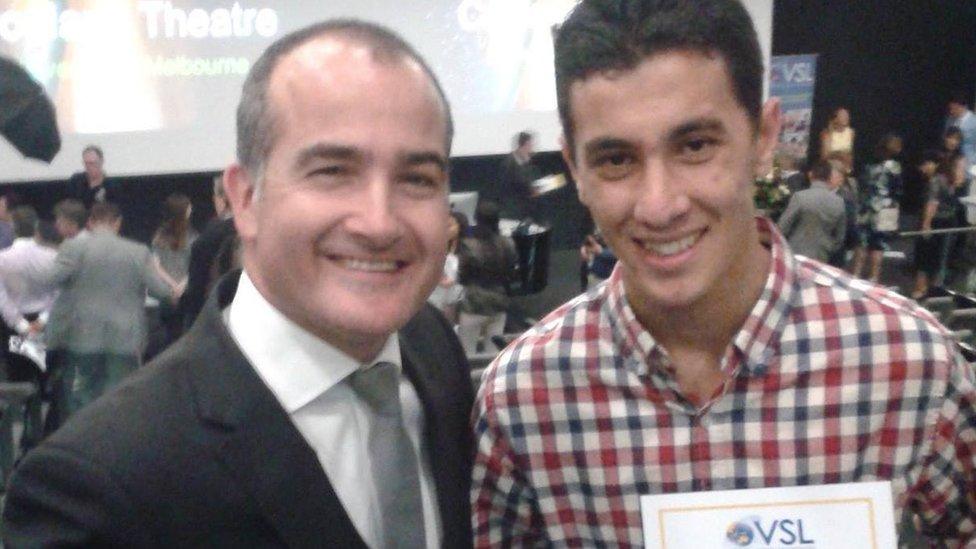
Saad with Australia's minister of education
The universal language of kebab
He says the culture in Australia took some getting used to - "Why do the shops close at 5pm?!" - but there are some universal similarities.
"We would always go and get kebabs in Homs, and over here, I still go with my Aussie friends to get kebab. It's a must!"
After his incredible exam results, Saad has been offered a scholarship to study biomedicine at Melbourne's Monash University, and wants to become a doctor.
Saad has come a long way from being the kid who wanted to play football instead of studying.
But the shadow of the Syrian war is never too far away.
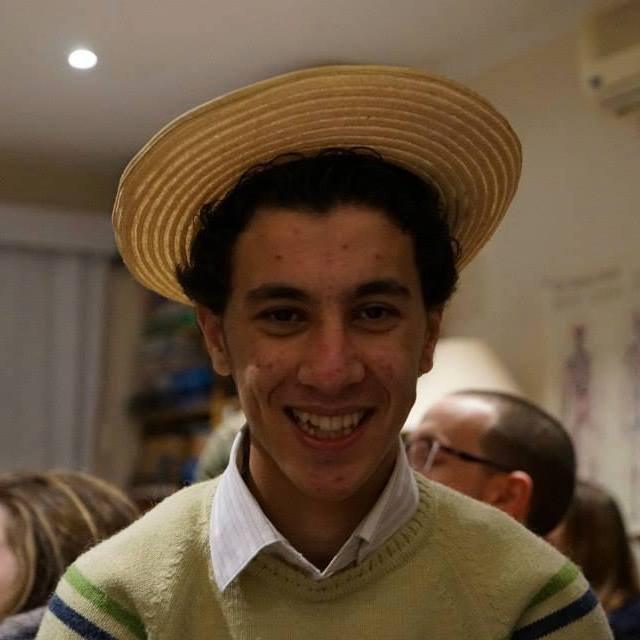
"I really feel so depressed that the truth about refugees is not being told properly, or the right picture is not being sent," he tells Newsbeat. "It really makes me sad to think that I have friends in my school back in Syria who were as good as me, but who didn't have the opportunity that I've had.
"I really wish they had the opportunity to keep going with their education."
He credits his mum for helping him to prioritise his education while they sheltered from bombs in Syria.
And he is also hugely grateful to his new country, for giving him a new start: "I just want to say thank you so much to Australia for giving me the opportunity. It's revived me and given me a new life."
Find us on Instagram at BBCNewsbeat, external and follow us on Snapchat, search for bbc_newsbeat